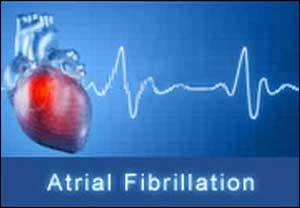- Home
- Editorial
- News
- Practice Guidelines
- Anesthesiology Guidelines
- Cancer Guidelines
- Cardiac Sciences Guidelines
- Critical Care Guidelines
- Dentistry Guidelines
- Dermatology Guidelines
- Diabetes and Endo Guidelines
- Diagnostics Guidelines
- ENT Guidelines
- Featured Practice Guidelines
- Gastroenterology Guidelines
- Geriatrics Guidelines
- Medicine Guidelines
- Nephrology Guidelines
- Neurosciences Guidelines
- Obs and Gynae Guidelines
- Ophthalmology Guidelines
- Orthopaedics Guidelines
- Paediatrics Guidelines
- Psychiatry Guidelines
- Pulmonology Guidelines
- Radiology Guidelines
- Surgery Guidelines
- Urology Guidelines
FDA approves sensor enabled ablation catheter for atrial fibrillation

The U.S. Food and Drug Administration (FDA) approved TactiCath™ Contact Force Ablation Catheter, Sensor Enabled™, a new ablation catheter designed to help physicians accurately and effectively treat atrial fibrillation (AFib), announced Abbott Pharmaceuticals.
Similar to Abbott's other sensor-enabled mapping and ablation treatment catheters, TactiCath (Sensor Enabled) SE delivers more precise images of the heart overlaid with real-time electrical activity information. The catheter also utilizes the advanced ergonomic design found in the company's FlexAbility™ ablation catheter for superior reach and maneuverability during cardiac ablation procedures.
Read Also: Annual screening of Atrial Fibrillation patients decreases Stroke risk
To treat conditions like AFib, physicians can use ablation catheters to scar tissue in the heart that is generating abnormal electrical signals and disrupting a patient's natural heartbeat. As the number of patients receiving cardiac ablation therapy worldwide has grown, Abbott has prioritized ablation technology that adds efficiency and accuracy to ablation procedures.
Not all ablation technology is the same, however. Physicians have begun exploring the use of new tools such as "contact force" technology during ablation procedures to help them avoid applying too much pressure to heart tissue (resulting in complications) or insufficient pressure (which may reduce the effectiveness of the procedure). In addition, Abbott has also invested in technology to improve the accuracy of cardiac mapping to support cardiac ablation procedures.
Read Also: Catheter ablation superior to drug therapy in atrial fibrillation and heart failure
"TactiCath SE directly supports our goal of supporting fast, effective and safe cardiac ablation procedures," said Srijoy Mahapatra, M.D., FHRS, medical director of Abbott's Electrophysiology business. "As more physicians turn to cardiac ablation to treat AFib, Abbott's goal is to equip them with the most advanced ablation catheters combined with the most advanced cardiac mapping on the market."
One of the most common cardiac arrhythmias in the world, AFib can affect how efficiently the heart pumps blood through the body, causing symptoms such as dizziness, shortness of breath or lightheadedness.

Disclaimer: This site is primarily intended for healthcare professionals. Any content/information on this website does not replace the advice of medical and/or health professionals and should not be construed as medical/diagnostic advice/endorsement or prescription. Use of this site is subject to our terms of use, privacy policy, advertisement policy. © 2020 Minerva Medical Treatment Pvt Ltd